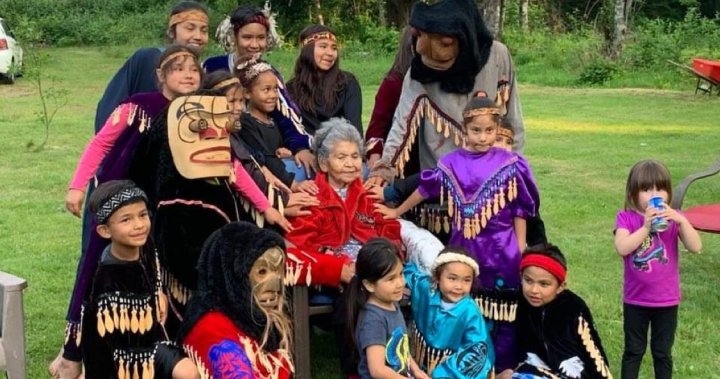Sts’ailes has always seen its children as the nation’s “most precious resource.”
For the past three years, they have been in negotiations with the provincial and federal governments to reach an agreement that would see the nation have full jurisdiction over its child and family services.
That co-ordination agreement was set to be signed by the three parties in early 2024, but in December 2023, the federal government reneged on its commitment, leading the province to also press pause.
“Over the last year and a half, we kept saying January 2024 and Canada and British Columbia kept saying yes and all of a sudden in December 2023, Canada said that they are not prepared to sign the agreement right now,” said Willie Charlie, Sts’ailes chief negotiator.
“The legal teams have all stated that they’re pretty comfortable, there’s nothing that is really outstanding or glaring that would slow it down, so we’re a bit confused as to why at the 11th hour, Canada said, ‘We’re not going to sign,’ we’re very disappointed.”
A ceremony was planned in Sts’ailes for Friday — one that would mark the occasion with representatives from Canada and B.C. in attendance, and despite a lack of signatures, the community plans to trudge ahead.
“In our culture, once you start planning for a ceremony, your ancestors get ready, the spirit of the occasion gets ready,” Charlie told Global News. “So we’re going to carry on with the ceremony and our chief and counsel, our leaders are prepared to sign the agreement.”
The nation has inked their signatures, but is still waiting for B.C. and Canada to sign — they say the lack of signatures won’t stop their progress.
Get the latest National news.
Sent to your email, every day.
“The child welfare system has never worked for us. And so leaving one of our children in that system for one day longer than they need to be is a day too long,” Charlie said.
Indigenous Services Canada has yet to respond to Global News’ request for comment.
In June 2019, Bill C-92, or An Act respecting First Nations, Inuit and Métis children, youth and families, received royal assent, and in January of the following year, it became law.
Since then, dozens of First Nations communities across Canada have signed co-ordination agreements — most of them trilateral (signed by the nation, province and feds) and one bilateral (signed by the nation and feds) — which see jurisdiction over child and family services placed in the hands of respective communities.
When Sts’ailes, British Columbia and Canada first began discussions, they signed a letter of commitment.
“That doesn’t mean to commit something that they’re not able to or that they can’t, it just means that they would sit across from us in good faith,” Charlie said.
The hope is that eventually all Indigenous communities will have jurisdiction over their own child and family services, however, some may be years ahead of others due to capacity issues and readiness.
For Sts’ailes, this work has been years in the making, and they’re ready.
“Around 2007 we signed an agreement with the Ministry of Children and Family Development around service delivery,” Charlie said. “Then we started really transforming the child welfare practices to be more Sts’ailes culturally.
“At that time we had social workers reporting not only to the ministry supervisor, but to one of our own and so that’s how we really start to transform the actual service.“
But Charlie said the nation has had a contract with the ministry going back to 1974.
“My mom was the first family support worker hired by the ministry to do work with our children in care, then the second one was me,” he said. “My mom is still involved today, and she’s a siyólexwe, an elder that gives advice to our program.”
The nation says they operate entirely differently from a provincially run child and family services program — they prioritize keeping the family together.
“We set aside a house, what we call, lálém,” Charlie said. “Our philosophy of the house is we take the whole family and put the whole family in the house and then we work with the whole family to ensure they stay as a family.
“Let’s not cut them into pieces and divide them, let’s work with them as the family they’re supposed to be.”
Sts’ailes will sign and proceed with Friday’s ceremony, “further asserting its inherent right to care for its children and families,” the nation said in a release.
They passed their own law that covers Sts’ailes children on reserve and were hoping to cover community members 0ff-reserve starting in April.
But without the federal government signing on, Sts’ailes is missing out on funding meant to help that work come to life.
“We went to the council and asked permission to allocate some of our own resources to fund the program,” Charlie said. “Council has committed that they’re going to fill some of the gap until Canada gets to the table.
“We’re already doing the service. What are we going to do? Stop?”
© 2024 Global News, a division of Corus Entertainment Inc.




